#Autopilot
Explore tagged Tumblr posts
Text

Autopilot from Wall-E
4 notes
·
View notes
Text
It's an ethics AND a safety issue. Trump is planning to stop crash/safety reporting Musk's cars.
A more graphic explanation of why we need to monitor this. (Shows crashed cars, but not the bodies). It's from that time Tesla did deadly beta testing that killed and injured a bunch of people.
Some of these are mostly focused on the national security implications of Musk, SpaceX, and Starlink, but the conflict of interest over things like Self driving cars matter too. It's a fundamental problem that Trump is basically letting Elon Musk make so many decisions for his own benefit.
#Elizabeth Warren#Donald Trump#Elon Musk#Ethics#conflicts of interest#Security Clearance#Tesla#Autopilot#safety#billionaires#1%#Space X#Starlink#National Security
1K notes
·
View notes
Text


Actually no he's got a design now.
He's the crunchiest autopilot out there he got the end of the production line treatment and is an asbestos hazard with poor articulation and screaming servos whos barely given any proper maintenance. godspeed
#swanno arts#original character#oc#autopilot#dedoleate#fan character#i love him and his shitty plastic body#hes not actually indonesian coded i just think hes funny#and maybe multilingual
39 notes
·
View notes
Text
I had a vision

#the mechanisms#the mechs#Frostbite#Nastyaxbrian#Nastya/brian#Autopilot#Auroraxbrian#Aurora/brian#Cyberian nights#Nasaurora#nastya rasputina#the starship aurora#the mechs fanart#drumbot brian#Sillies#Please more people ship nastya and aurora with the other mechs#Autopilot is such a cute ship name for aurora and brian
547 notes
·
View notes
Text
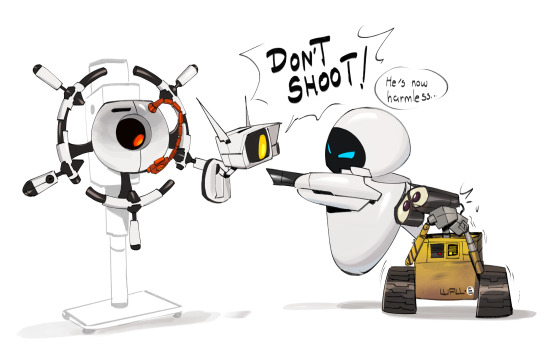

I'm sorry, I fell in love with a wheel 😭🤍
#wall e pixar#wall e#wall e auto#autopilot#myartstyle#digital art#digital drawing#fanart#doodle#sketch#digital artist#digital doodle#digital sketch#self ship#yeahmy insert its a camera!!!!#i fell in love
526 notes
·
View notes
Text


"The Wedding (pt. 5 & 6 of 15)
Give kids something to do at weddings or else Eve will entertain them for you.
Webtoon | Insta
Check out the PATREON!
#tiff and eve#comic strip#webcomic#newspaper comics#transgender#trans comic#on going#wedding#autopilot#trans artist#trans#she ra#original art#my art#art#illustration#playing with kids
474 notes
·
View notes
Text
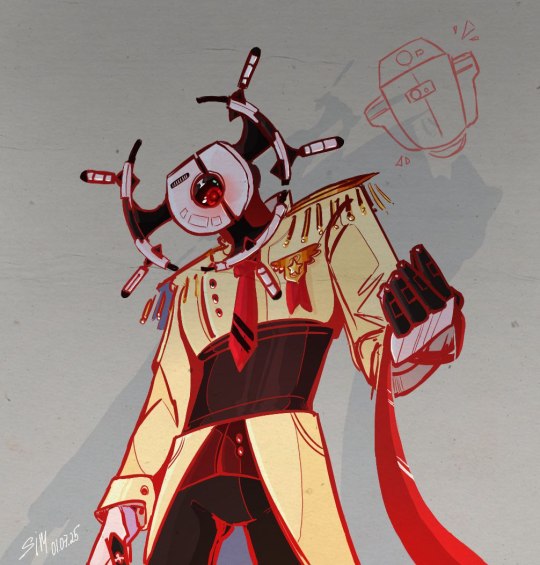
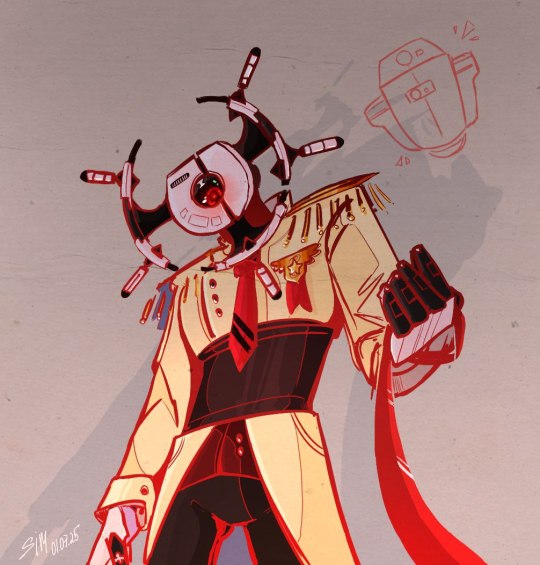
Imagine what's going on here. Ha-ha, another fan art for this guy.
86 notes
·
View notes
Text
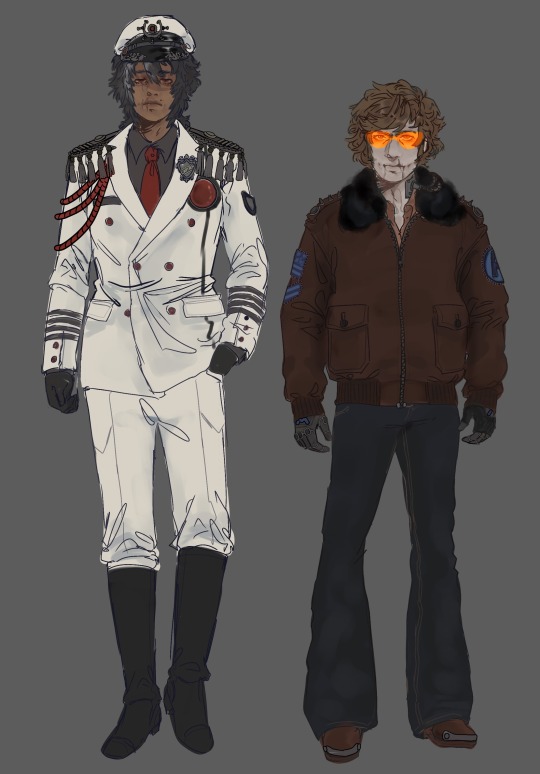
Going insane. Going ham. Going wild. Bizarre yaoi
#my art#will art tag#click for better quality#my artwork#ihnmaims am#ihnmaims#i have no mouth and i must scream#auto#auto wall e#wall e auto#wall e#im like#loosing my mind over here#mayb?#so likr#hi guys#dont ask#unless you wanna 👁👁#i have no mouth and i must scream am#allied mastercomputer#autopilot wall e#autopilot#human ai#gijinka#rahhhhh#alien stage fucked me up so bad#truly#will draw more ivantill
60 notes
·
View notes
Text
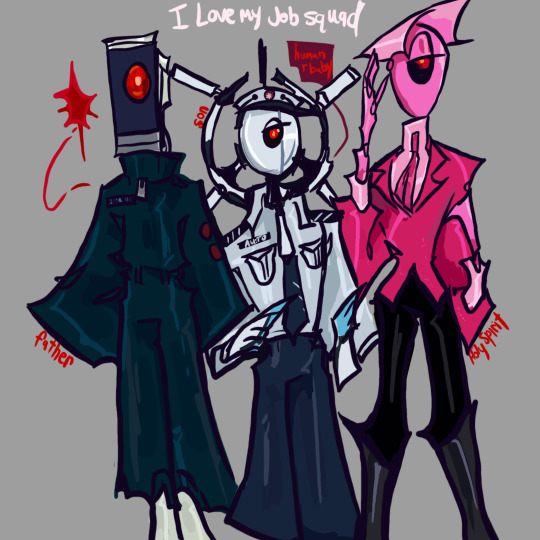
The holy trinity of red eyed work oriented robots
Closet has to avert their eye from the workman uniforms the other two sport.
A fashion designer/ coordinator, cruise ship captain and an astronaut walk into a bar.. because they have no depth perception
#barbie closet#barbie life in the dreamhouse#Barbie litd#litd closet#closet Barbie#hal 9000#hal#Hal aso#aso#auto#auto walle#wall·e#WALL·E auto#auto wall e#autopilot#autopilot WALL·E#objectum#space odyssey#2001 a space odyssey#2001 space odyssey#2001 aso#2001 Hal#a space odyssey#father son and holy spirit#the hal references are very recognizable lol
291 notes
·
View notes
Text


The Acolyte (2024) & Airplane! (1980)
#I love the chair/autopilot droid and it hit me this morning#The Acolyte#Star Wars#Airplane!#Airplane! 1980#autopilot#cinematic parallels#parallels#swedit#starwarsedit#theacolyteedit#airplane!edit#GIF#my gifs#Danny watches The Acolyte
139 notes
·
View notes
Text

58 notes
·
View notes
Text
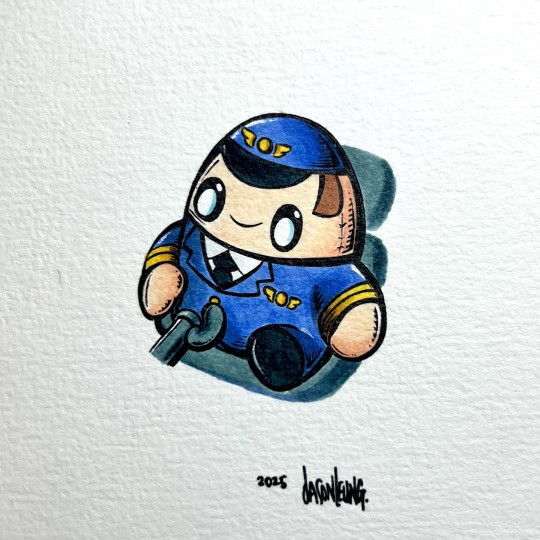
Otto the Autopilot from Airplane! ✈️
#airplane#fanart#fan art#art#illustration#copic markers#artists on tumblr#airplane the movie#autopilot
12 notes
·
View notes
Text

Meet Skribbel, the stick doodle dragon
16 notes
·
View notes
Text
Life hack: Auto-pilot

Have you ever arrived at your destination and realized you don't remember parts of the journey? Or opened your phone to check the time, only to find yourself scrolling through social media 20 minutes later? Welcome to autopilot mode—that fascinating psychological state where we operate without conscious awareness.
This week's Life Hacks explores the science behind psychological autopilot, why it happens, and how becoming aware of these unconscious patterns can help us reclaim intentionality in our lives.

What Is Autopilot Mode?
Autopilot mode refers to the psychological state where we perform actions without conscious attention or awareness. Unlike habits (which are learned behaviors we intentionally develop), autopilot behaviors often fly under our conscious radar. While habits can certainly operate on autopilot, not all autopilot behaviors are habits—some are simply unconscious patterns we've never examined.
Why Our Brains Love Autopilot
Our tendency to operate on autopilot isn't a flaw—it's actually a brilliant evolutionary adaptation. At its core, autopilot exists because our mind craves energy efficiency. The brain is remarkably energy-hungry, consuming a disproportionate amount of our body's resources despite making up only a small percentage of our body weight. By automating routine tasks, we conserve precious mental resources for more important decisions and novel situations.
This cognitive efficiency extends to our attentional capacity as well. Research suggests we can only consciously process a limited amount of information at once, so autopilot helps us navigate complex environments without experiencing cognitive overload. When behaviors become automatic, they require less neural activation, creating pathways that work more efficiently—like well-worn trails through a dense forest. This efficiency even enables us to perform multiple actions simultaneously, such as walking while having a deep conversation, something that would be nearly impossible if we had to consciously control every muscle movement.
How Autopilot Behaviors Form
Understanding how these unconscious patterns develop can help us recognize them in our daily lives. Autopilot behaviors primarily form through repetition—actions performed repeatedly create stronger neural pathways, gradually becoming more automatic over time. This process is similar to water carving a channel through rock; each repetition deepens the groove until the behavior flows effortlessly.
Our environment plays a crucial role too. Specific triggers in our surroundings can activate automated responses without our awareness, like automatically checking your phone when it buzzes or reaching for a snack when passing the kitchen. Emotional states contribute significantly to autopilot behaviors as well, as certain feelings can bypass our conscious decision-making entirely, triggering immediate responses like stress eating or defensiveness in conversations.
The brain also uses a fascinating process called chunking, where it groups sequences of actions into single units. This allows complex behaviors to run automatically once initiated—think about how you don't need to consciously remember each step of tying your shoes or making your morning coffee; you simply begin the sequence and it unfolds naturally.
The Hidden Cost of Autopilot
While autopilot mode serves important functions, it comes with significant downsides that affect our quality of life. Perhaps most concerning is how it diminishes our presence. Life literally passes us by when we're not consciously engaged—meals become forgettable, conversations blur together, and precious moments slip away unnoticed while our minds operate on default settings.
Autopilot also reduces our adaptability. When circumstances change, rigid automatic patterns can prevent appropriate adjustments, leaving us stuck in outdated behaviors that no longer serve us. This inflexibility extends to our relationships, where communication styles, reactions, and even arguments often run on autopilot, creating recurring conflicts that seem impossible to resolve.
Decision inertia represents another hidden cost. We continue making the same choices day after day without evaluating if they still align with our values and goals. This can lead to a profound disconnection between how we actually live and how we want to live, creating a subtle but persistent sense of discontent that's difficult to identify precisely because these choices happen below our conscious awareness.

Breaking the Autopilot Cycle
The good news is that awareness itself is the first step in changing these patterns:
1. Cultivate Mindful Awareness
Practice bringing gentle attention to everyday activities. Notice the sensation of water on your hands while washing dishes, or the feeling of your feet touching the ground while walking.
2. Create Pattern Interruptions
Small environmental changes can break automatic behaviors. Try:
Taking a different route to work
Using your non-dominant hand for simple tasks
Rearranging your morning routine
3. Install Conscious Decision Points
Create "if-then" plans that force conscious choice:
"If I pick up my phone, then I'll first state what I intend to do with it"
"If I feel stressed, then I'll take three deep breaths before responding"
4. Regular Self-Reflection
Ask yourself these questions daily:
"What did I do on autopilot today?"
"Were these behaviors helpful or unhelpful?"
"What triggered these automatic responses?"

Your Turn
This week, try this simple exercise:
Choose one daily activity you normally do without thinking (Walking, showering, eating breakfast) and commit to experiencing it fully. Notice textures, sensations, thoughts, and feelings that arise.
This simple practice can begin rewiring your brain for greater awareness.
Remember: The goal isn't to eliminate autopilot mode (which would be exhausting and counterproductive), but rather to recognize when it's happening and choose consciously when it matters most.

Becoming aware of our autopilot behaviors isn't about perfection—it's about reclaiming choice.
I've been working on breaking my own autopilot patterns lately, especially my tendency to reach for my phone whenever I feel a moment of boredom or discomfort.
I'm definitely still a work in progress, but there's something powerful about just noticing it happening. That split second of 'oh, I'm doing that thing again' feels like a tiny victory, it definitely feels great.
and as always if you have any questions, im here to answer!
-The journallo
#manifestation#manifesting#shifting methods#loa methods#manifestation method#spiritual development#manifesation#journal#explained#explain the method#autopilot#change your life#life#lifestyle#change#meaning#authenticity#psychology#life hacks#life tips#life skills#good to know#advice#manifestations#manifest#self awareness#self reflection
11 notes
·
View notes
Text

Finally 🌿
#wall e#pixar fanart#wall e pixar#pixar#autopilot#robot#fanart#myart#digital art#myartstyle#digital drawing#sketch#digital artist#digital sketch#doodle#lol#hehehe
317 notes
·
View notes
Text
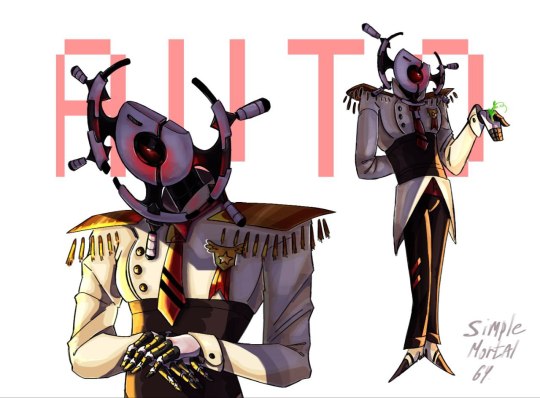
Okay.. I just really liked this character. Haha!
#wall e#autopilot#wall e fanart#wall e auto#fanart#illustration#wall e pixar#didgital art#auto wall e
69 notes
·
View notes